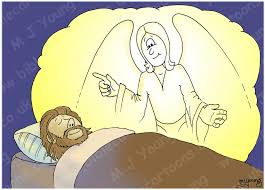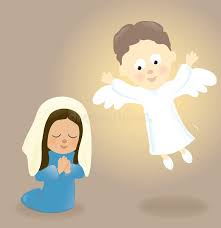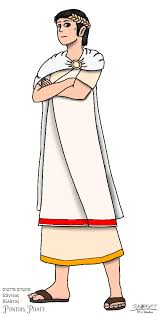cc unit 1 beliefs and teachings
1/47
There's no tags or description
Looks like no tags are added yet.
Name | Mastery | Learn | Test | Matching | Spaced |
|---|
No study sessions yet.
48 Terms
monotheism
christians only believe in one God, based on teachings in the Bible and teachings from Jesus
trinity
three persons in one God
Nicene creed
Christian declaration of faith explaining one God exists as all three persons - all equal and all eternal
how is belief in the trinity central
mass begins with welcome in the name of the trinity, worshippers proclaim belief in trinity through Nicene creed in the mass
God as the Father
a Christian’s relationship with God should be like a child’s relationship with a parent, continuing relationship of love and care with his creation, God will provide for and protect his people
God in the Son
Jesus is God in human form
God in the Holy Spirit
God communicates with humans and the Holy Spirit helps the Church preserve and explain Church teachings
how is the trinity important for Catholics today
One way that trinity is important for Catholics today is prayer as praying to the Father, through the Son in the power of the Holy Spirit gives Catholic belief God is ‘beyond us, with us and in us’. Another way that trinity is important for Catholics today is God’s presence as it gives Catholics the sense that God is active and present in the world. Another way that the trinity is important is through God’s love, the trinity teaches to work together to bring God’s love into the world just as the Trinity work together to bring God’s love into the world
how is the trinity hinted in the old testament
1) God speaks the word to create and the Spirit hovers over creation and 2) prophet Isaiah claims God sent his word and Spirit to create and guide
how is the trinity referred in the new testament
1) Jesus’ final words in Matthew are to make disciples, baptising them in the name of the Father, the Son and the Holy Spirit and 2) St Paul refers to the Trinity in several letters
gospels
clearly show Trinity in the accounts of the baptism of Jesus
creation according to Genesis chapters 1-3
God created the whole world in 6 days, starting with heavens and ending with humans, each part came about from God’s words and He made humans have authority over the world. God said Adam and Eve could eat fruit from all trees but one, if they eat from the tree of good and evil they would have to leave the garden, Adam and Eve were tempted by a snake to eat the fruit from the forbidden tree, became afraid and hid from God, they had to leave the garden
literal interpretation of creation
literalist believe creation is an exact retelling of what occurred ‘word for word’ truth, view creation as historical and scientific account, those with metaphorical interpretation views accounts as symbolic/sacred stories, shows nature and purpose of universe while incorporating modern science and Catholics tend to see story as metaphorical and use science to better understand the universe
characteristics of God: creator, benevolent, omnipotent and eternal
creator ‘Let there be light’
benevolent ‘God saw that the light was good’
omnipotent ‘Let the waters be gathered and let the dry land appear’
eternal ‘In the beginning was the word’
what does Genesis’ teachings of nature of humanity remind Catholics
1) each human being is special, unique and sacred in God’s sight
2) humans are more than animals and are not to be used as objects
3) humans have fundamental rights such as freedom of expression, right to food and health care
nature of humanity (characteristics): rational
1) rational, 2) free will and conscience 3) relating to God 4) giving and receiving love and 5) being answerable to God
1) rational where humans are intelligent and can find their way to God, significant for Catholics engaging in debate about faith
2) free will and conscience where humans can choose right or wrong and conscience is the voice of God within, significant for Catholics making moral choices that uphold values of the gospels
3) relating to God where humans are able to enter into a relationship with God, significant for Catholics going to weekly mass/daily prayer
4) giving and receiving love as humans can only find happiness within a community of love, significant for Catholics accepting the vocation of marriage
5) being answerable to God humans are accountable to God for their actions, significant for Catholics for what happens in their next life
what does the Catholic Church teach about nature of humanity
1) gift from God
2) stewardship
1) Christians should regard creation as a gift from God to be used by humans the way God intended
2) God has given humans dominion and humans have a responsibility to look after God’s creation, make sure it is not exploited and resources are shared fairly
incarnation + Catholic belief (1 conception and 2 Mary)
belief God became a human being in Jesus, Catholics believe as the only son of God, Jesus did not have a normal conception but did have a normal birth and also Mary was a virgin when Jesus was born and remained a virgin her whole life, being born from a virgin was the way God became man
how is the virgin birth important for Catholics
shows Jesus was the Son of God, shows God was in him and he was in God, shows Jesus had two natures: human and divine

biblical basis for the incarnation: Matthew’s gospel
tells how an angel told Joseph Mary was a virgin who conceived the Holy Spirit, the baby would be called Jesus and save people from Sin

biblical basis for the incarnation: Luke’s gospel
tells how Mary was visited by Gabriel who told her about the virgin birth of Jesus, was visited by Shepard who were also visited by angels telling about the miraculous birth
biblical basis for the incarnation: John’s gospel
records incarnation in a theological form, identified Jesus as the word of God, begins gospel at the beginning of the universe when the word made everything, describes how the word has become flesh
paschal mystery
refers to the death and resurrection of Jesus and their effects on salvation
events of the paschal mystery: last supper
the night before he was crucified, Jesus enjoyed a meal with his disciples in Jerusalem by sharing bread and wine with them
events of the paschal mystery: garden of Gethsemane
after supper, Jesus left the disciples, prayed to God and asked ‘take this cup from me, yet not my will but your be done.’
the disciples woke and Judas arrived with the priest chiefs to arrest Jesus
events of the paschal mystery: the trial (1)
Peter denied he knew Jesus when he was challenged, the Sanhedrin found Jesus guilty of blasphemy claiming to be Christ

events of the paschal mystery: the trial (2)
Jesus was taken to Pontius Pilate, found him innocent and offered to either release Jewish or a Jewish freedom fighter
Jesus lost and was condemned to death by crucifixion
events of the paschal mystery: the crucifixion
Jesus was crucified on Friday, Simon of Cyrene carried the cross
Jesus forgave his killers and died with words ‘Father into your hands I commend my spirit.’
events of the paschal mystery: the resurrection and ascension
Jesus appeared to two disciples and continued for 40 days
he told them to wait for the gift of the Holy Spirit and was taken up from them into a cloud
importance of the paschal mystery: last supper
basis of Mass, most important form of Christian worship
Christians believe the crucifixion brought forgiveness of sin
what does the Catholic Church teach about the Paschal Mystery (1)
it guarantees humanity’s salvation from sin as Jesus freely offered himself for our salvation and this was symbolised by him breaking bread and saying ;’this is my body given for you’
what does the Catholic Church teach about the Paschal Mystery (2)
Christ’s resurrection promises resurrection for all those who believe
His ascension, Jesus gives his believers hope one day they will be with him forever in heaven
significance of the paschal mystery: what do Catholics believe about salvation
humans cannot save themselves from sin but choose to accepted salvation
humans participate in the paschal mystery through the life of the Church
what does salvation actually mean
being saved from sin
original sin: inherited from first humans
personal sin: consequence of own action
sin
separates a person from God making relationships with God difficult
Catholic Church teaches Jesus came to Earth to restore the relationship through salvation brought by his death
why do Catholics believe salvation is important
without it there can be no real relationship with God
without it a person’s sin will prevent them from entering heaven
salvation from sin was the purpose of Jesus coming to Earth
grace
mercy that is undeserved, Christ dies for humanity’s sins without humans doing anything to deserve it
how do Christian’s receive grace
baptism: Holy Spirit breathes love and strength into them, helping them to work for the salvation of others
what does the Catholic Church teach comes from grace
receiving the sacraments of baptism and confirmation
receiving the sacrament of reconciliation/confession
receiving Eucharist in the Mass
eschatology
refers to religious beliefs about death, judgement and life after death
bible teachings on eschatology (John’s gospels and St Paul)
records how Jesus raised Lazarus from the dead
says ‘Jesu's’ resurrection is a guarantee of life after death for Christians and everyone will be raised on the last day for a final judgement’
eschatology: what does the Catholic Church teach in the catechism
Christ will return at the end of the world and raise the dead
God will judge everyone and make a new heaven and a new Earth
eschatology: what does the Catholic Church teach in the catechism (heaven, purgatory and hell)
those perfectly purified go to heaven
those with unforgiven sins go to purgatory to be purified
those totally evil and rejected God go to hell
Catholic belief on heaven and hell
heaven is perfection and eternal peace with God
God wants everyone to enter heaven but people have free will
non Catholic view on life after death
do not believe in purgatory as it is based on teachings of the Church not teachings from the Bible
evangelical protestant view on life after death
believe when a person dies their soul remains in the grave until the last day and a final judgement
liberal protestant view on life after death
when the body dies, the soul leaves the body to live with God in a spirit
why is life after death important to Catholics (1)
believe they will be judged God and gives incentive to live a good Christian life loving God and thy neighbour
sin prevents them from going to heaven
gives life meaning and purpose
helps explain why Catholic charities focus on helping those in need - trying to love thy neighbour